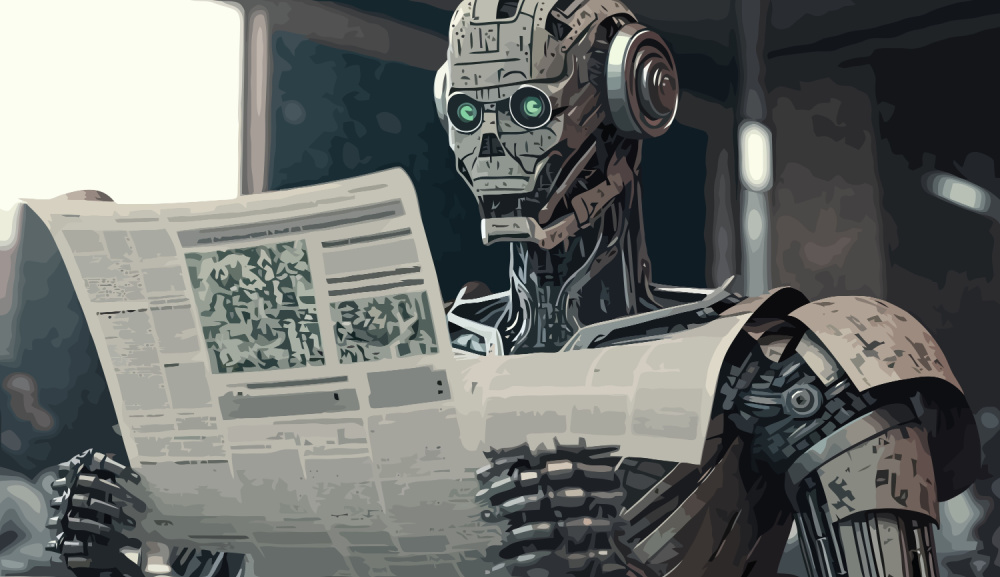Welcome to our weekly roundup of artisanal AI news.
This week OpenAI teased us with “GPT Next”.
Elon Musk flipped the switch on Colossus.
And AI is watching you whether you like it or not.
Let’s dig in.
GPT When
At the KDDI SUMMIT 2024 in Japan, OpenAI Japan CEO Tadao Nagasaki hinted at the company’s next-generation AI model. Hints, whispers, and ambiguous presentation slides appear to indicate that “GPT Next” will be 100x more powerful than GPT-4.
Is it an aspiration, a real project in progress, a product due for imminent release? Who knows?
At some point, OpenAI hype has to become a shippable product to stem the exodus of frustrated ChatGPT Plus users wondering why they’re still paying 20 bucks a month.
Investors are still bullish about OpenAI, despite talks of an AI bubble primed to burst. The company is reportedly in talks to raise funding which would see it hit a staggering $100 billion valuation.
All that cash driving the development of potentially species-ending tech is bound to attract some scrutiny. OpenAI joined Anthropic in a security deal with the US government which will give them a sneak preview of new models.
Hey, Sam. Why not let Ilya have a look under the hood so we can get his feedback? And make it quick. Autonomous AI looks like it’s already here.
Introducing Project Sid: the first simulations of 1000+ truly autonomous agents collaborating in a virtual world, w/ emergent economy, culture, religion, and government
Humans are the only species to land the moon, because we can cooperate at a vast scale
Can AI do the same? pic.twitter.com/bh2OHDJWU7
— Robert Yang (@GuangyuRobert) September 3, 2024
Size matters
Besides launching rockets, boring tunnels, making self-driving cars, and running X, Elon Musk has been busy creating the world’s most powerful AI training supercomputer.
This week, Musk revealed xAI’s “Colossus,” and, considering how many NVIDIA H100s they’ve crammed into it, the name is spot on. Colossus reportedly has 4x the compute used to train GPT-4 and Musk says it’s going to get even bigger.
Grok 3 is going to be epic and we might even get to see it released before the end of 2024.
AI is like a box of chocolates
Generative AI is the gift that keeps giving, especially if you’re a scammer. This week Tom Hanks had to warn his fans that the guy in the videos punting a “wonder drug” was an AI fake even though it looked and sounded just like him.
While Hanks swats back AI scammers, other performers might be getting better job security. California is poised to see two new bills become law and they’ll protect living and dead celebs from being replaced by AI.
Smile, you’re on camera
AI is making it easy for authorities to see when citizens step out of line. UK police forces are rolling out AI-powered cameras to catch more UK drivers who use their phones and don’t wear seatbelts while driving.
Safer roads sound like a great idea, but privacy advocates have questions about where the slippery slope of Big Brother snooping will take society.
AI policing doesn’t have a great track record. However, facial recognition company Clearview AI insists its tech is helping the US government catch the bad guys. Clearview’s database of 30 billion images of faces has landed it in hot water though.
Dutch authorities fined it $33m for scraping images of EU citizens without their permission and they might go to extreme lengths to get them to pay.
Ka-ching!
AI agents are already performing some useful tasks, but paying for stuff still requires humans to take out their credit cards. That could be about to change. The CEO of crypto exchange platform Coinbase said his company witnessed the first AI-to-AI crypto transaction this week.
Coinbase now allows users to create a crypto wallet and link it to an AI agent. Imagine an AI agent paying your bills, booking tickets, hiring a freelancer, or transacting with other AI agents to complete a task. This could be huge.
In other news…
Here are some other clickworthy AI stories we enjoyed this week:
- Anthropic launches Claude Enterprise with an expanded 500K context window and a native GitHub integration.
- This tech company stole voice artists’ voices, used AI to clone them, and then sold them.
- Venezuela’s newest news agency says AI anchors protect reporters amid government crackdown.
- Smartwatch insults Chinese as authorities struggle to tame AI.
- PLAUD’s wearable AI notetaker pin transcribes and summarizes conversations in real-time.
- New York Times writer exposes how AI models can be fooled by invisible text on websites.
- Researchers give us a preview of what an AI model with a 100M token context window can do.
- Amazon will use Anthropic’s Claude to power its upgraded Alexa assistant.
- Lumen Orbit is building data centers in space to make use of 24/7 solar energy and passive cooling.
🚀@LumenOrbit (YC S24) is building a network of megawatt-scale data centers in space, scalable to gigawatt capacity.
Congrats on the launch, @johnstonphil, @ezrafeilden, and @adioltean!https://t.co/VfVjcwJrbe pic.twitter.com/ycOvFSQP4N
— Y Combinator (@ycombinator) September 3, 2024
And that’s a wrap.
Are you done paying attention to any “news” related to OpenAI or are you repeatedly hitting refresh on ChatGPT to see if we got GPT Next? OpenAI just announced its @OpenAINewsroom X account so maybe…
What do you think about the new Californian AI laws protecting performers? Do they make sense or are they simply delaying the inevitable?
OpenAI promises may have grabbed the headlines but the real stars this week were the two AI agents trading a bit of crypto for some text. AI agents creating communities and economies of their own will change everything.
Let us know what you think, follow us on X, and send us links to cool AI stuff we may have missed.

